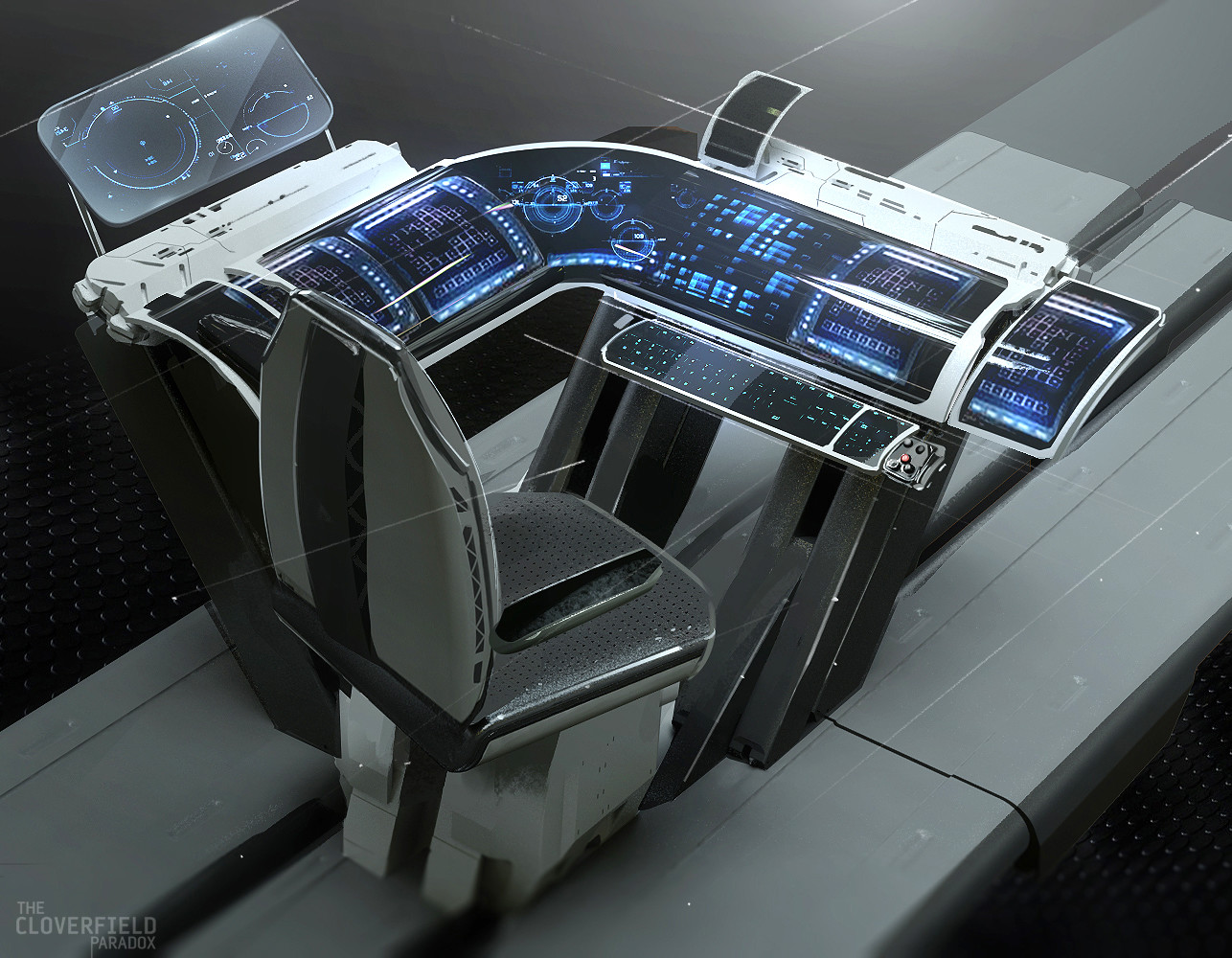Mara D'Lessio Merrill
The Lesser D'Lessio

OUT OF CHARACTER INFORMATION
- Intent: A good solid life support system with a couple of innovations.
- Image Source: "Console Concept" by Joshua Viers, found at https://www.artstation.com/artwork/LP9Yw
- Canon Link: N/A
- Restricted Missions: N/A
- Primary Source:
Radiation deflection badge - Atmospheric reprocessor
- Artificial gravity
- Water reprocessor
- Osmotic field
- Lifeform scanner (Note: This subsystem does not pierce through cloaking technology)
PRODUCTION INFORMATION
- Manufacturer: Merrill-Valkner Systems Engineering (MVSE)
- Model: Chrysalis Life Support System
- Affiliation: Open-market (may be used by any character without permission from the manufacturer)
- Modularity: Not especially -- though the radiation deflection subsystem could be modified to increase its protective capacity for the short term at the cost of burnout.
Production: Mass-produced
- Material: Steristeel, electronics
- Advanced radiation protection
- Multispecies atmospheric processors
- Redundant safety interlocks
- Backup inertial dampeners
- Internal lifeform scanners
- Osmotic fields
- Protects crew from low to moderate levels of radiation across the spectrum.
- Adaptable to a variety of species on a room-by-room basis.
- Interlocks and internal lifeform scanners prevent artificial gravity panels from being pitted against each other, or crew from being asphyxiated by atmosphere exchange subsystems.
- Steristeel console and access panels keep everything squeaky clean.
- Vulnerable to system strain, like any life support suite. If the ship gets damaged, life support systems will experience real trouble, subsystem by subsystem.
- Not suitable for any ship under 25 metres, or with a fighter-style cockpit, due to system and console bulk, processor load, and power requirements.
An adaptive, internally integrated life-support system is a rarity outside of luxury yachts and cruise liners. The MVSE Chrysalis brings that level of adaptability and reliability to the mass market. Specced for light to medium freighters, the Chrysalis is also compatible with the life support needs of larger vessels. Life-support systems are notable for needing frequent recharges and top-ups; the Chrysalis is a high-efficiency system that minimizes those needs, assuming those kids don't leave the dang thermostat on again.
Unique in a life support suite, the Chrysalis includes a heavily upscaled version of standard radiation deflection badge technology. This subsystem protects all crew and passengers from mild to moderate radiation. A close-range blast from a pirate's radiation grenade launcher will still cook you pretty well, though, and the subsystem has little to no effect against direct hits from ship-to-ship radiation weapons.
Dedicated osmotic fields allow beings to pass through, but prevent atmospheric mixing, chemical contamination, etc. The osmotic fields can be tuned for extra effectiveness against specific biochemical contaminants.
Backup integrated inertial dampeners (much better-protected than other components) supplement a vessel's standard inertial compensation equipment.




